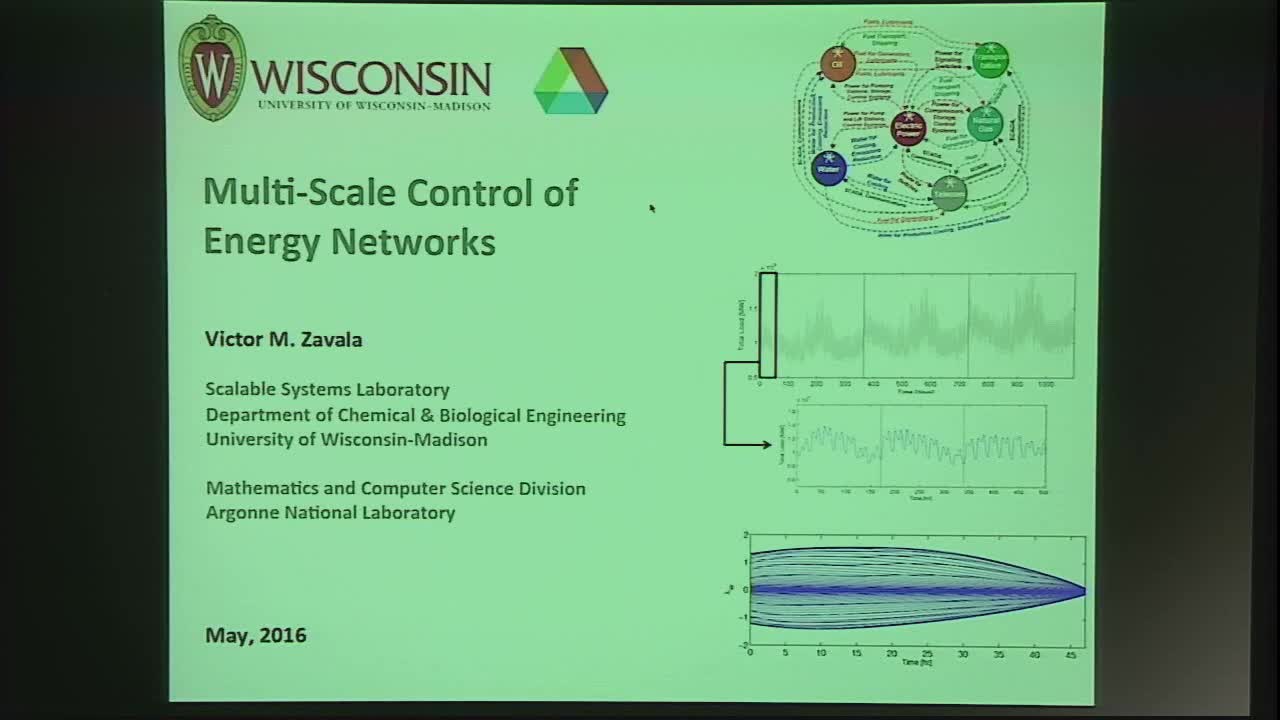Multi-Scale Control of Energy Networks
Presenter
May 11, 2016
Keywords:
- multi-scale, control, energy, networks
Abstract
Energy networks are becoming increasingly decentralized and exhibit new forms of coupling. For instance, during the polar vortex of 2014, sustained low temperatures in the Midwest region of the U.S. resulted in unusually high gas demands from buildings in urban areas. This led to shortages of natural gas that propagated to California, Massachusetts, and Texas. The gas shortages forced power plant shutdowns totaling 35 GW. At a value of lost load of 5,000 USD/MWh, such shortages represent economic losses of 175 million USD per hour. System operators recognize that better infrastructure coordination is needed to anticipate and ameliorate the effects of such extreme events but this is challenging, given the drastically different time scales and topologies of the individual networks. In this talk we present a new control paradigm for large-scale energy networks: multi-scale model predictive control (msMPC). This is a hierarchical model predictive control (MPC) architecture that seeks to overcome the intractability of centralized MPC while enabling decentralized and asynchronous decision-making. This is done by constructing a hierarchy of MPC controllers that operate at different spatiotemporal resolutions and domains of the full system. MPC controllers at each level operate at increasing resolutions and decreasing domain sizes as we move down the hierarchy. We show that MPC control agents can be coordinated within and across hierarchical levels by using dual (adjoint) variables. Adjoints transfer information between space and time scales and domains and can be refined adaptively to achieve central optimality. This approach is the only known hierarchical MPC scheme capable of recovering optimality and provides new insights into how energy infrastructures could be organized. We also discuss how to use these concepts to perform state estimation tasks in the presence of multi-scale sensor data.
